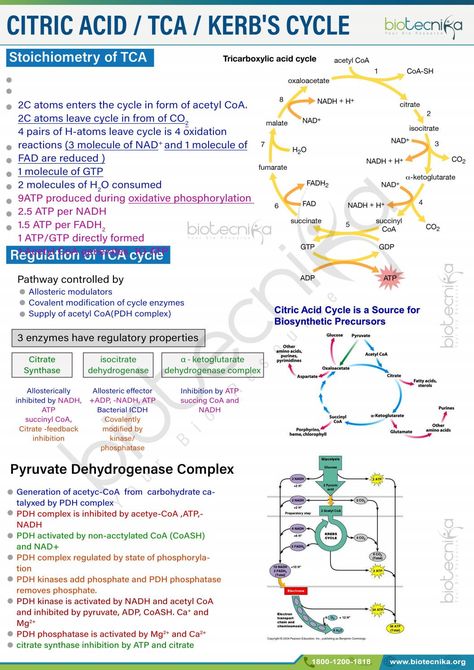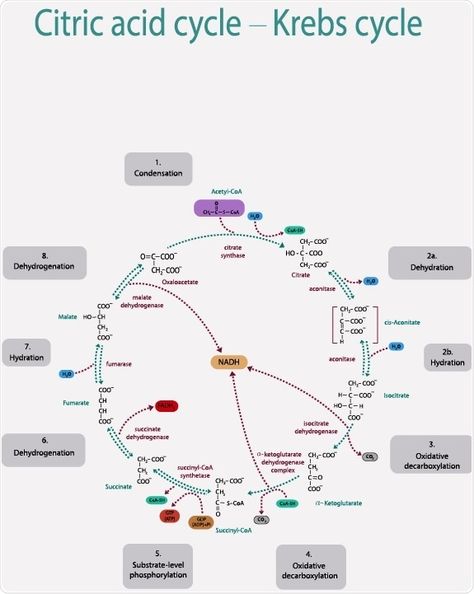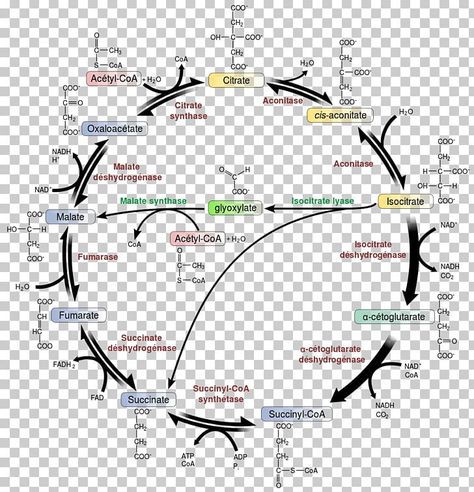Kreb Cycle (Citric Acid Cycle, or TCA cycle (tricarboxylic acid cycle)), is a central metabolic pathway where the sequence of biochemical reactions releases energy stored in the form of ATP. The Krebs Cycle takes place in the mitochondria. The Krebs Cycle was discovered by Hans Krebs. The cycle starts with
133





































